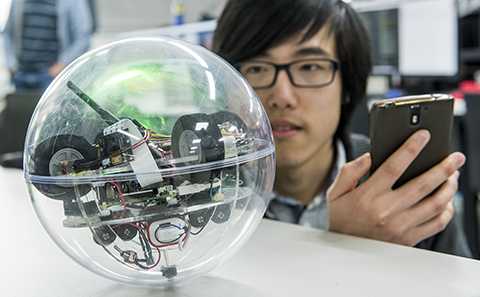PhD Studentships
Details of current PhD studentships are advertised on our job opportunities page.
Details of current PhD studentships are advertised on our job opportunities page.
I think student’s concerns about employability are more acute than ever. Increasingly, employers are expecting the whole package; the ability to write fluidly and think critically with the technical, analytical skills offered by for example computer science. Web Science is unique in that it provides both. It’s no exaggeration to say Southampton University is leading the world in this field.

Be part of a new generation combining state-of-the-art electronics and biomedicine to develop new medical and healthcare technologies

Benefit from our long and successful history in electrical and electronic engineering with degrees designed for future technologies
Current students of electrical engineering have really timed it right – the job opportunities are amazing. We’ve got to invest in the UK power industry for the next 40 years, and there are challenging and financially very rewarding careers out there.